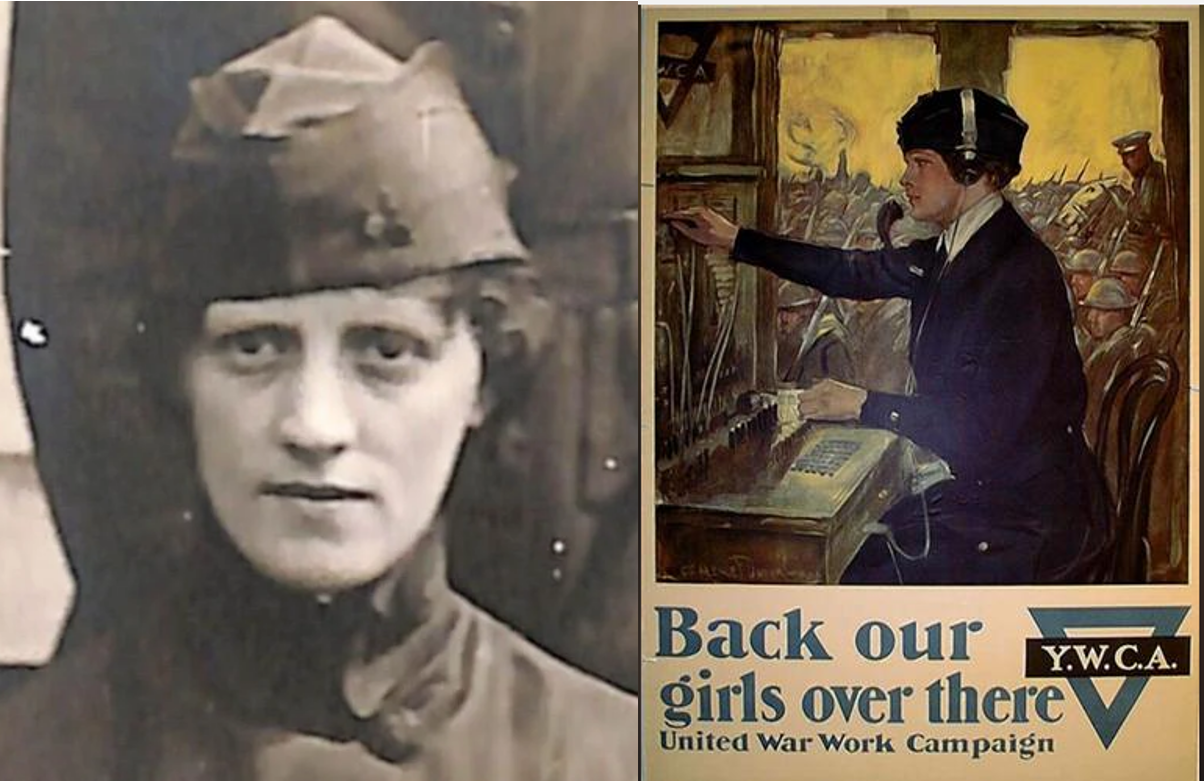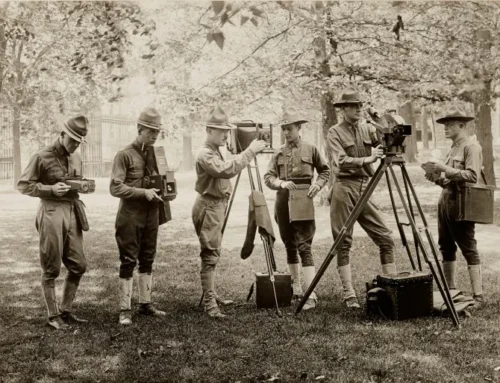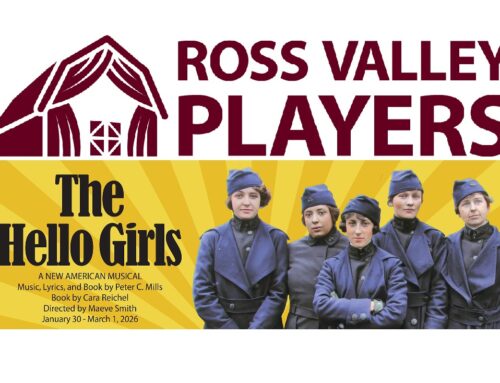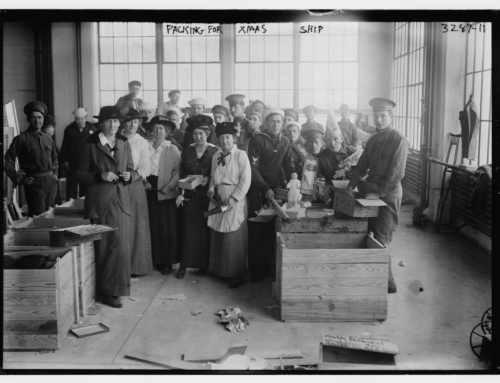WWI telephone operator from Ellsworth to receive highest civilian medal posthumously
Published: 7 September 2025
By William Tracy
via The Ellsworth American newspaper (ME) website

Sarah Fairbrother Aldrich header
Sarah Fairbrother Aldrich (left) was a member of the U.S. WWI U.S. Army Signal Corps Female Telephone Operators, known as The Hello Girls.
ELLSWORTH — In the age of new technologies deployed with unprecedented devastation in the chaos of World War I, the then-novel incorporation of telephones in wartime was just as critical to the Allies’ success.
Answering the call in a time when many women could not vote and had their medical reports passed to their husbands was English-born Ellsworth resident Sarah Fairbrother Aldrich. She was a local toll operator for a telephone exchange whose husband Harry worked for The American. Aldrich was one of 223 women who deployed overseas as part of the newly created U.S. Army Signal Corps Female Telephone Operators Unit. Affectionately called the “Hello Girls,” the operators helped the United States and its allies achieve victory in an extensive effort in the midst of wartime Europe. They untangled the mess of telephone line communications from headquarters to the frontline and translated the influx of multilingual communications reflective of the first global war.
Now, thanks to the efforts of the women’s descendants and a six-year campaign raising awareness and petitioning Congress, the Hello Girls are set to receive a Congressional Gold Medal, the oldest and highest civilian award in the United States. The authorization was signed into law by President Biden in one of his final acts in his term as part of the 2025 National Defense Authorization Act.
“These were America’s first women soldiers, and these medals will ensure that they are recognized as such and remembered for generations to come,” said Donna Ayres, a New Hampshire resident whose great aunt M. Olive Shaw was a Hello Girl.
Ayres has campaigned Congress and traveled throughout New England to research Aldrich and others who chose to serve in the war effort.
In November 1917, American Expeditionary Forces Commander John J. Pershing realized the need for more telephone operators to assist with U.S. Army Signal Corps operations as the war entered its final year and the Allies’ multinational efforts continued to consolidate. Real-time translators fluent in French and English were needed to coordinate joint forces under fire. Women were recruited as the manpower pool was limited, and they made the overwhelming share of civilian switchboard operators.
Hundreds of American women applied for the opportunity. Fewer still were allowed into the training process, and only 223 were qualified to serve after passing the rigorous requirements. Aldrich, fluent in French, was one of a handful of women from Maine sent into an active war zone.
In March 1918, the unit, led by experienced telephone operator Grace Banker, undertook a transatlantic journey to install telephone switchboards. Operations spanned across Paris, Chaumont and 75 other locations in France, as well as various British sites in Winchester, London and Southampton. The women operators set up shop answering calls for artillery support, informing pilots when to take off and relaying orders. Their voices were a welcome sound for many battle-hardened and homesick soldiers. The Hello Girls were exposed to the perils of warfare with enemy artillery attacks near their positions and other battlefield threats during 12-hour shifts.
“In France, the Hello Girls connected over 26 million calls, averaging a speed of just 10 seconds, six times faster than the men they replaced,” said Chris Christopher of the Doughboy Foundation, a nonprofit that supports projects and programs aimed at educating the public about U.S. participation in WWI. “Doughboys” was a popular nickname for American soldiers during the war. “Over 30 Hello Girls received individual commendations, and two died while in Army service.”
→ Read the entire article on The Ellsworth American website.
External Web Site Notice: This page contains information directly presented from an external source. The terms and conditions of this page may not be the same as those of this website. Click here to read the full disclaimer notice for external web sites. Thank you.



